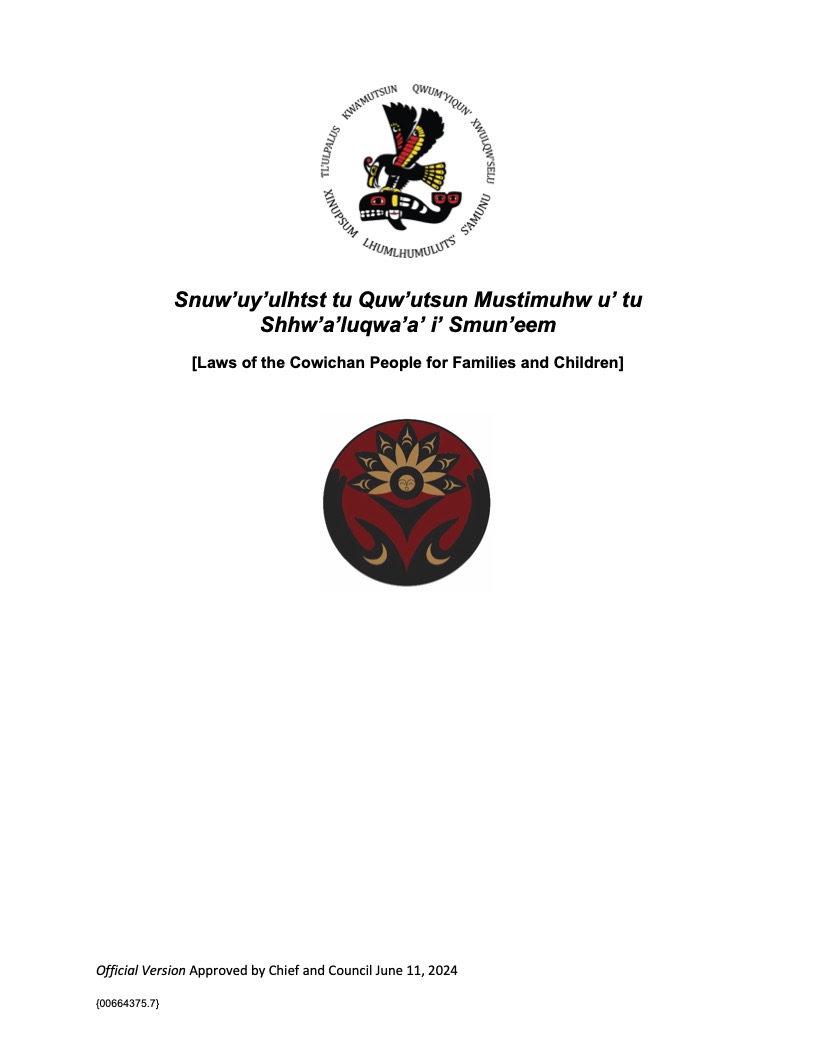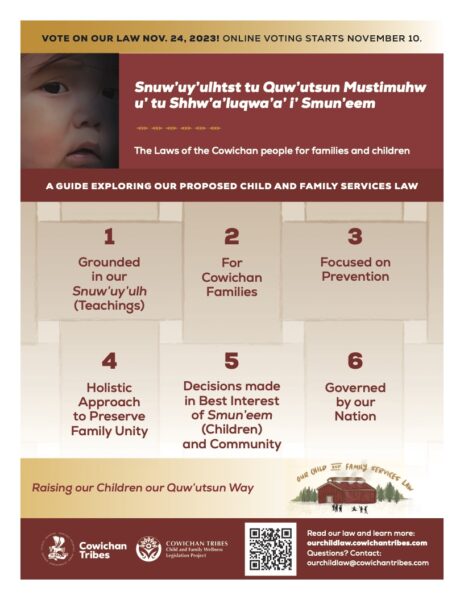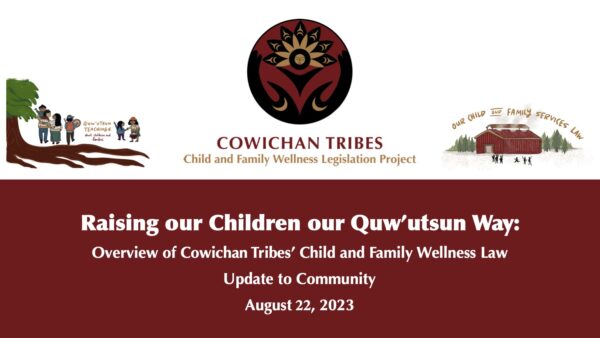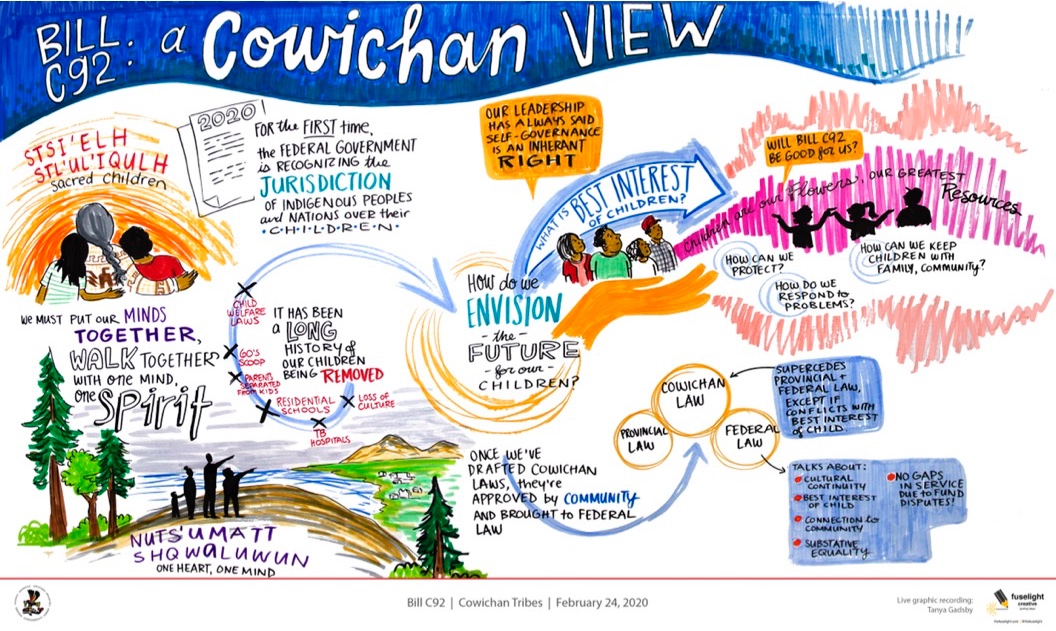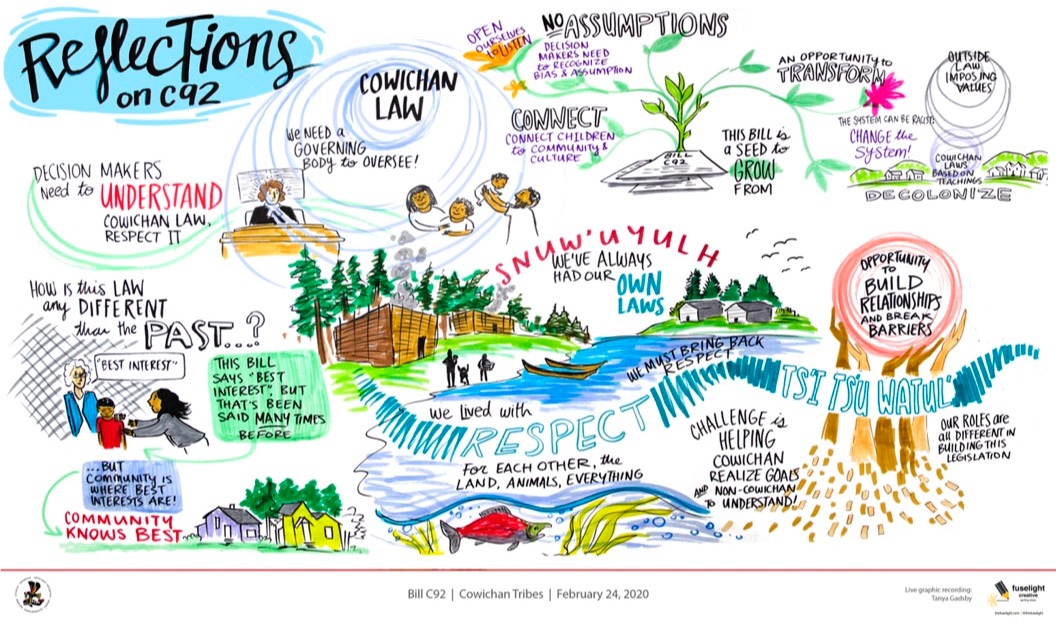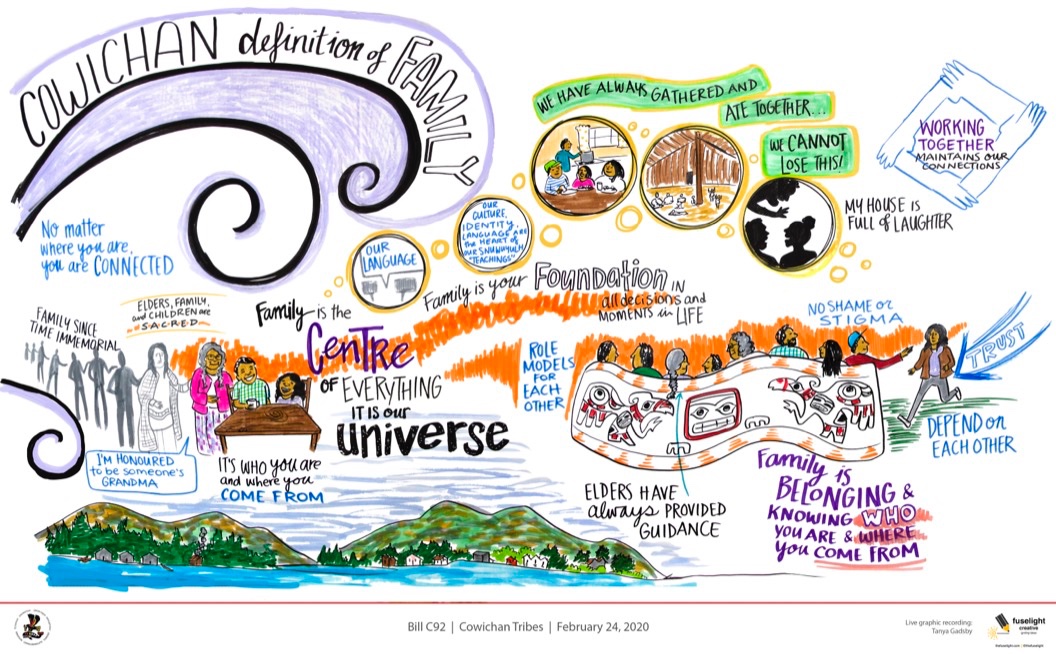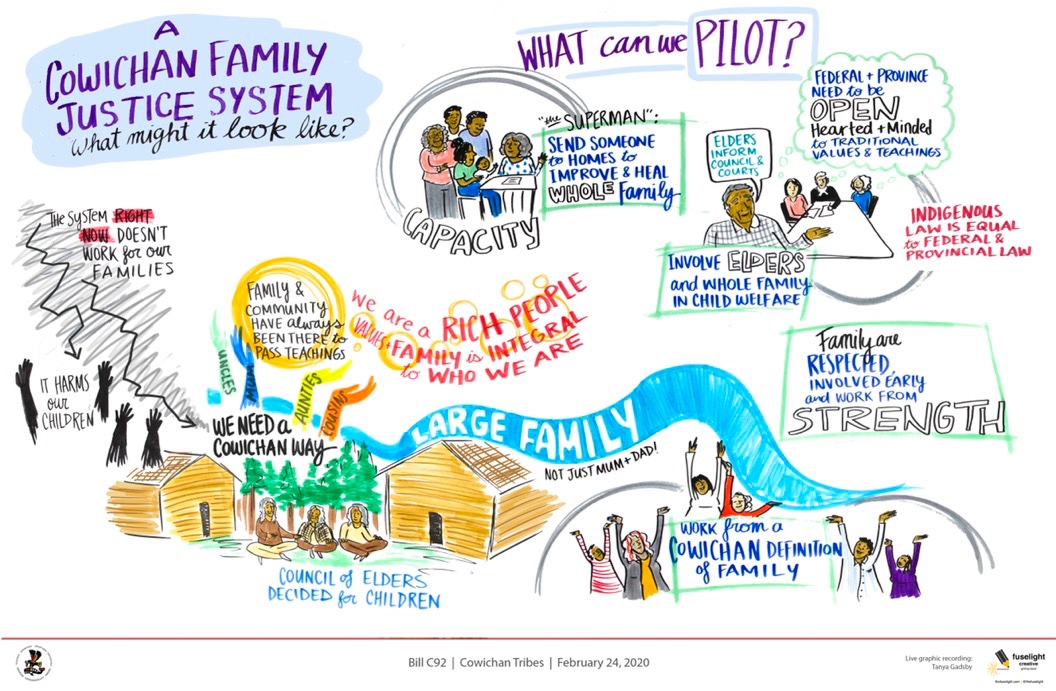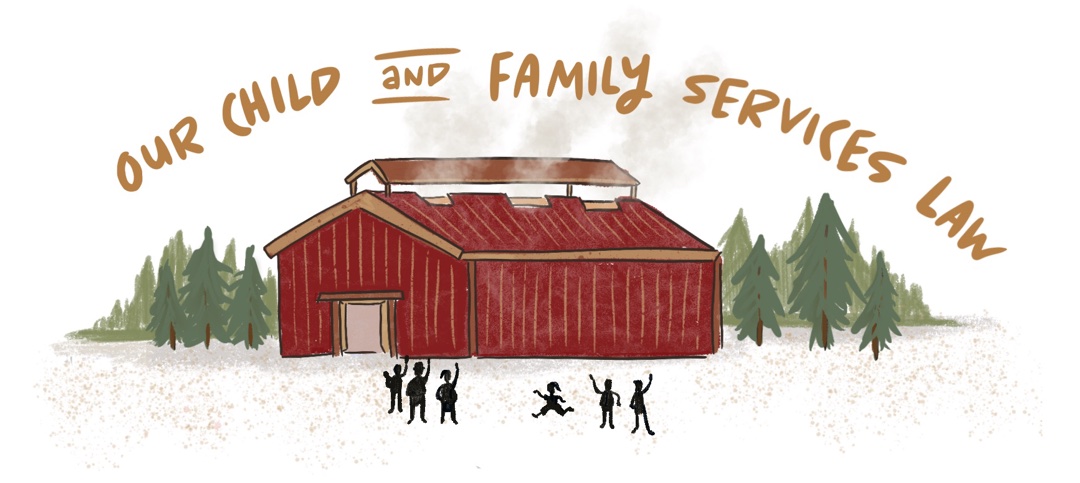
“I believe the new law will be a stepping-stone to transforming the well-being of our community. Our law will be measured by the overall health of our community, including: safe and happy children, higher rates of employment, and more graduates…”
Passage of Law C-92 – a Watershed Moment in our History
After decades of inaction and ignoring alarm bells raised by Indigenous communities, service providers and child advocates, the federal government responded in June 2019 by introducing C-92, An Act respecting First Nations, Inuit and Metis children, youth and families to transfer authority over child services to First Nations, Metis and Inuit communities.
Co-developed by Indigenous, provincial and territorial partners, the act:
- Affirms the rights of First Nations, Inuit and Métis peoples to exercise jurisdiction over child and family services.
- Establishes national principles such as the best interests of the child, cultural continuity and substantive equality.
- Support the implementation of the United Nations Declaration on the Rights of Indigenous Peoples.
- Provides an opportunity for Indigenous peoples to create their own solutions for their children and families.
In January 2020, C-92 was passed. This was a historic achievement for all Indigenous people, bringing us one step closer to reclaiming our inherent right to self-governance.
The law outlines a process for working with federal and provincial partners to transfer authority and funding to Indigenous communities. Once the Cowichan law is ratified, it will replace two sets of existing provincial and federal laws, and guide service providers on how to support children and families who require services.
Intro to the Law
Cowichan Tribes’ leadership has always believed that self-governance (including the ability to guide and care for our own children and families) is an inherent right of our people. We have our own teachings – our Snuw’uy’ulh – that govern us, and we believe that provincial laws:
- Are not consistent with our culture and teachings. Cowichan Law is grounded in our Snuw’uy’ulh
- Does not recognize the importance of children to our community’s well-being. Our Law treats our Smun’eem as sacred, and their wellness and safety are of the utmost importance to our families, communities and citizens.
- Does not provide our families with enough time or resources to overcome challenges. Cowichan Law focuses on lum-stam’sh (prevention). Support services, early intervention, and prenatal services are prioritized.
We know that when we are able to exercise complete jurisdiction over child and family services, fewer Indigenous children will be taken into care. By living with their families and in their own communities, our children will achieve their full potential while families can heal and live healthy, productive lives.
When the project team developed the Cowichan law, they considered these and other complex questions:
- What do our Snuw’uy’ulh teach us about our responsibilities, our governance and decision-making process?
- What does our new service delivery model look like?
- Who can be considered a Cowichan child for the application of this law?
- Who will make final decisions about Cowichan Tribes children and families? How will disagreements be resolved?
We look forward to sharing updates as we develop our new Child and Family authority that will oversee the implementation of our Law and as we develop policies and standards that are grounded in our culture, principles of prevention and the sacredness of our smun’eem.

